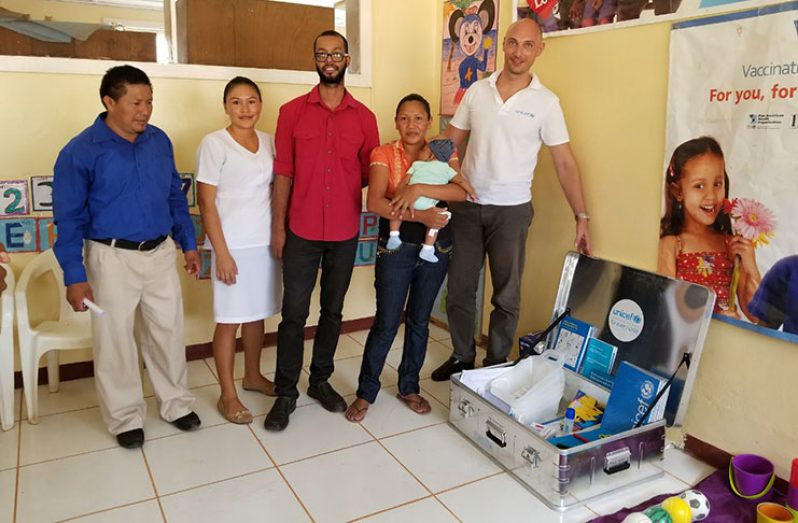THE Public Health Ministry launched its Early Childhood, Adolescent and Men’s Health programmes in Lethem, Region Nine last week, demanding stronger legal support and protection for victims of sexual crimes.
The Public Health Ministry’s triple initiative has the backing of the global United Nations Children’s Fund (UNICEF) and endorsements from the Ministries of Education and Social Protection.

Regional Chairman, Brian Allicock, was elated that the Upper Takutu/Upper Essequibo area was singled out for the launch of the programmes.
While Dr Oneka Scott, Adolescent Health Focal Point person of the Health Ministry expressed her pain on the lukewarm national attitude towards the crisis faced by Guyanese adolescents, it was LeAndre Stellingburg, a nurse employed in the region, who exposed the alleged tepid response of the Guyana Police Force ranks and the Village Council to the plight of rape victims.
Stellingburg said police ranks consistently seem “unwilling to act” when complaints of sexual crimes are reported and Village Council authorities routinely re-victimise complainants.
“Legal representation is needed for the mothers” Stellingburg said, reminding the audience that some girls became parents against their will.
When he spoke, UNICEF’s Deputy Representative, Paolo Marchi, highlighted numerous challenges faced by adolescents and pleaded for “special support” from the wider Guyanese society for girls to help them make more informed choices.

Criminal violence, domestic violence, trafficking in person (TIP), drugs and alcohol, lack of quality education, lack of access to key resources – whether financial or social “are all traps waiting for adolescents” Marchi counselled.
Guyana “needs to ensure that services are made available for this critical grouping,” the UNICEF official said.
He said while sexual reproductive health should be openly discussed in Guyana since 21 per cent of the population are adolescents (in the 10-19 age groups), girls must delay becoming parents since that can constrain their growth.
The UNICEF official lauded the Public Health Ministry for launching the novel triple programme simultaneously, emphasising that “this is important for Region Nine and the country.”
During her keynote address, residents heard Dr Scott referring to statistics which indicated that more than 50 per cent of the countries of the Americas have adolescent fertility rates higher than 72 out of every 100,000 in the 15-year-old age group.
In Guyana, the figure is 74/100,000, Scott said. She said in indigenous communities, some 20 per cent of the girls become mothers before the age of 16.
Dr Scott, who is also an Emergency Room physician, is troubled that adolescent health is not given the attention it deserves in Guyana.
“No one reports on adolescent health,” Dr Scott bemoaned.
She is unhappy too that public institutions are increasingly forced to take more responsibilities for the welfare of adolescents because of the systemic breakdown in the local family structure. Dr Scott has noted that more and more Guyanese parents have accepted, as inevitable, their children becoming sexually active from an early age.
Meanwhile, ‘machoism’ still constrains men and boys in Guyana from accessing critical health services.
A recent survey here has highlighted the need for more “male-friendly” clinics, according to Dr. Scott. She said clinics which specialise in issues mainly affecting the male population “are dynamic and go beyond (mere) physical check-ups”.
The Men’s Health aspect of the triple programme is functioning under the theme “Healthier men for a Stronger Healthier Nation.”
During the working group session with Dr Dennis Bassier targeting males, there was heightened interest among them on the issue of prostate cancer, which reportedly kills approximately 29 out of every 100,000 men living in the Caribbean.




.jpg)









